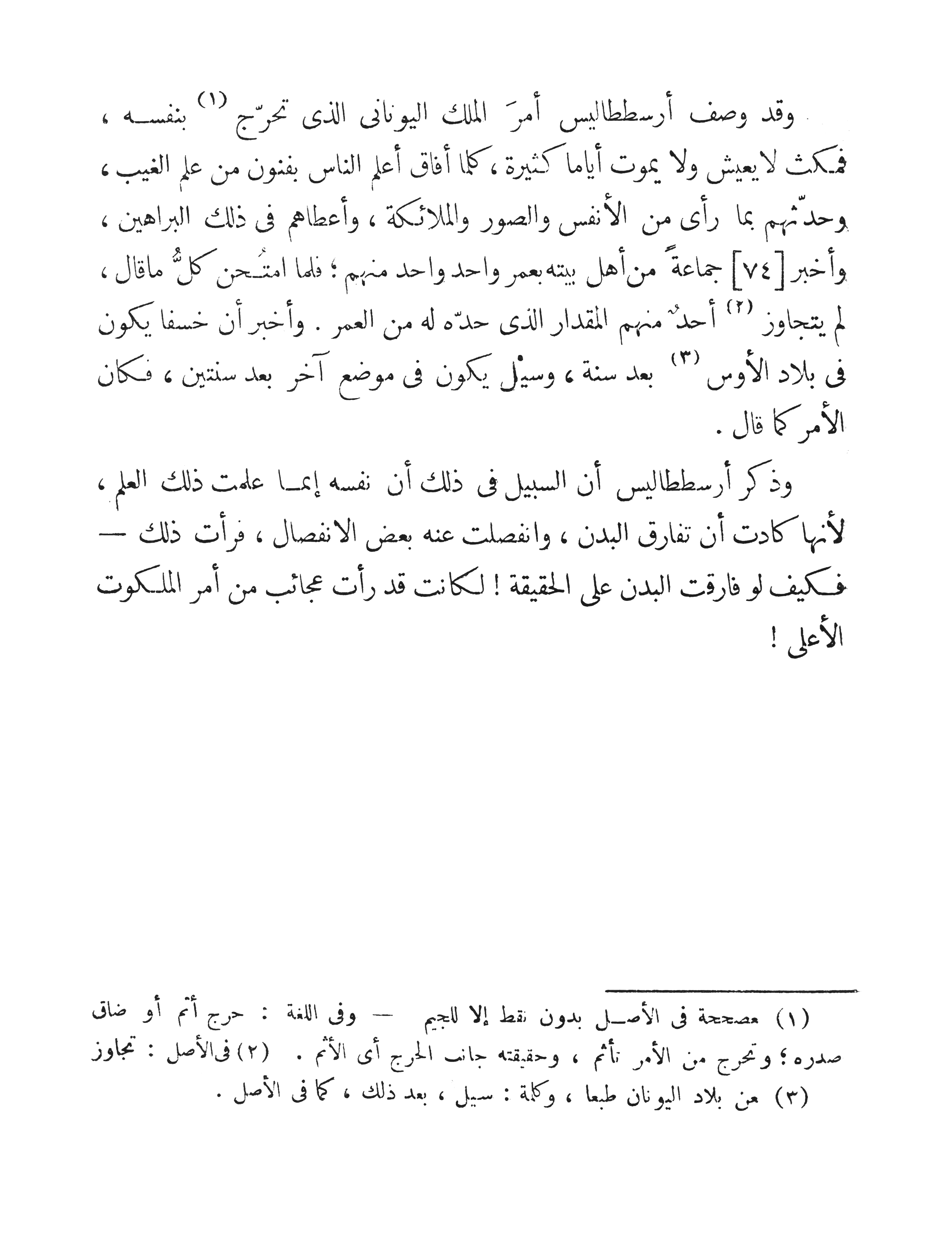Aristotle has described the case of the Greek king who had difficulty breathing. He continued to waver between life and death for many days. While he recovered, he instructed people in the arts of hidden things. He told them about the souls, the forms, and the angels, and provided them with proofs for this. He let some members of his household know how long each of them had to live. When all of what he said was put to the test, none of them exceeded the life span which he had determined. He predicted a lunar eclipse which would occur in the land of Greece after one year, and a flood which would happen elsewhere after two years. And it was as he said.
Aristotle explained this in the following way. His soul had this knowledge only because it had nearly departed from the body, and had partially detached itself. Therefore it saw these things—and how [would it have been] had it really separated from the body! Truly, it would have seen wondrous things from the highest kingdom.
Author: al-Kindī
Title of Work: Discourse on the Soul (or On the Doctrine of the Soul)
Location in Work: 6 (’Abū Rīda 1.279)
Date of Work: c. 840 CE
Original Language: Arabic
Original Text:
(Scanned page image only: no transcript of the Arabic currently available).

Reference Edition: ’Abū Rīda, al-Kindī, 1.272-280
Translation Source: Adamson and Pormann, Al-Kindī, 113-118
Source of Date of Work: Adamson, Al-Kindī, 10-12
Commentary:
al-Kindī was a leading intellectual of the Abbasid caliphate based in Baghdad. This story is excerpted from a short treatise in which he summarized the Platonic doctrine of the soul, citing mainly ideas of Plato or attributed to Pythagoras. In the introduction al-Kindī wrote that he would utilize Aristotle’s book ‘on the soul,’ and this is the only section of the treatise he attributed to Aristotle.
What‘s remarkable about this story is the specifically prophetic nature of the Greek king’s near-death visions, whereas most near-death visions in ancient Greek literature focus on cosmology and the transmigration of souls. However it is an unexpectedly mystical story for the usually rationalist Aristotle, which has led most scholars to assume it is the work of some other Greek writer (see Adamson, Al-Kindī, 113-118 with n. 10).
There is another similar story attributed to Aristotle, in which a Eudemos of Cyprus has a seemingly prophetic near-death dream (Cicero, Divination, 1.25/53), and due to that similarity, it has often been suggested that al-Kindī’s story was drawn from the same lost Aristotle text Cicero quoted from (which was sometimes called Eudemos and sometimes called ‘On the Soul’). If that work was pseudo-Aristotelian, then it would make sense for al-Kindī’s story to have been in it. But it has been argued that the Eudemos was an authentic work of Aristotle, and that its story as told by Cicero (unlike al-Kindī’s) seems crafted as a set-up for Aristotle to counter by showing that Eudemos’ dream-predictions could have come true by auto-suggestion and coincidence (see Walker, Aristotle’s Eudemus).
Concordance:
Bolton, Aristeas, 155; Ross, Aristotle Fragments, Eudemus 11